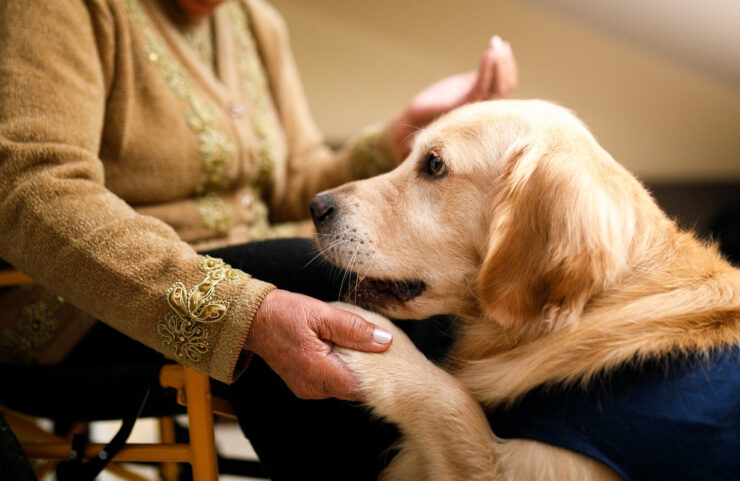Table of Contents
Watching your loyal friend age is bittersweet. They’ve been your companion through thick and thin, and now it’s time to give them the extra care they need. Aging dogs face unique challenges, but with a little effort and love, you can make their golden years truly special.
Key Points
- Nutrition plays a huge role in vitality.
- Joint care improves mobility and reduces discomfort.
- Stimulating their mind prevents cognitive decline.
- Vet visits ensure early detection of problems.
- Tailored exercise keeps them active and comfortable.
Boosting Vitality with the Right Nutrition
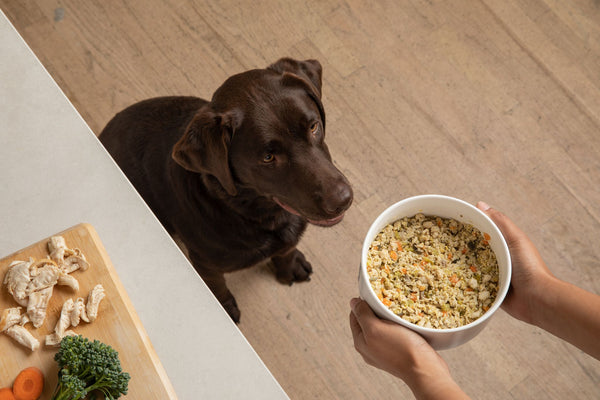
Nutrition directly impacts energy levels, immunity, and overall wellness. Older dogs often require fewer calories but higher-quality nutrients. Look for foods specifically formulated for older animals. These options usually include added fiber for digestion, antioxidants for immunity, and omega-3s for joint and brain health.
Key Benefits of Multivitamins
- Fill nutritional gaps not covered by food.
- Improve coat and skin quality.
- Boost energy levels and overall well-being.
For an easy, reliable solution, check out the best multivitamin for dogs from MyHealthyDog. It simplifies keeping your furry friend feeling their best.
Easing Joint Discomfort
Arthritis and joint pain make life harder for aging companions. Common symptoms include stiffness, limping, or difficulty standing. But there’s hope—simple changes and supplements can transform their mobility.
Recommendations for Joint Care
- Supplements: Glucosamine and chondroitin protect cartilage, while omega-3s reduce inflammation.
- Orthopedic Beds: Provide cushioning to support achy joints.
- Ramps: Help them get on furniture or into cars with ease.
- Hydrotherapy: Swimming strengthens muscles without stressing joints.
A combination of these strategies ensures comfort and better movement.
Keeping the Mind Sharp
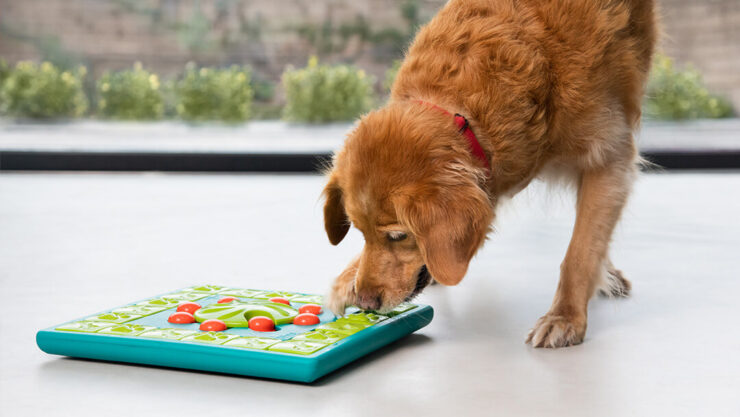
Mental stimulation prevents confusion and behavioral issues as dogs grow older. Just like humans, their brains need exercise too.
Practical Examples of Mental Stimulation
- Puzzle Toys: Fill them with treats to challenge their problem-solving skills.
- Hide-and-Seek: Hide treats around the house and let them sniff them out.
- Training Refreshers: Practice basic commands like “sit” or “stay” to keep them engaged.
Short daily sessions of brain-boosting activities not only stimulate their mind but also strengthen your bond.
Regular Checkups
Routine vet visits become more important as dogs age. Health problems develop quickly, but early detection improves outcomes.
Pro Tips for Vet Visits
- Track Symptoms: Keep a journal of any changes in behavior, appetite, or mobility.
- Ask Questions: Don’t hesitate to bring up concerns, even if they seem minor.
- Prioritize Dental Care: Gum disease leads to other serious conditions, so regular oral checkups are crucial.
Bi-annual checkups should be non-negotiable. They allow you to stay one step ahead of potential issues.
Tailored Exercise for Comfort
Exercise is essential, but energy levels and physical abilities change with age. Adjusting routines ensures they stay active without overexertion.
Examples of Low-Impact Activities
- Short Walks: Opt for frequent, short strolls instead of long treks.
- Swimming: Perfect for reducing joint strain while staying active.
- Interactive Play: Gentle games with soft toys encourage movement without pushing limits.
Pay attention to their cues. If they tire quickly or seem hesitant, adjust the routine accordingly.
Oral Care for Long-Term Health
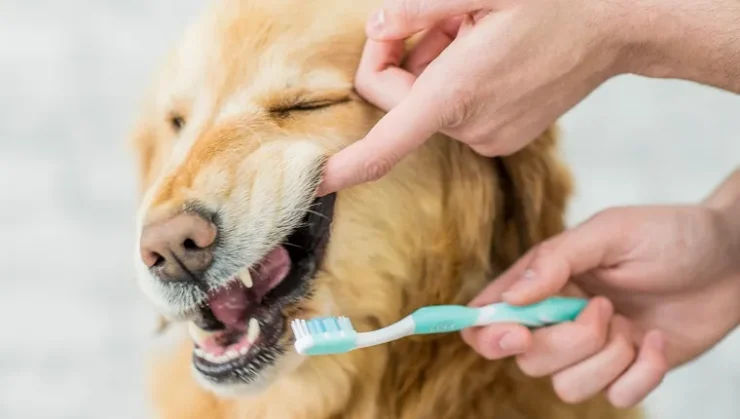
Oral hygiene impacts overall well-being more than many realize. Poor dental care can lead to painful gum disease, tooth loss, or even infections that affect vital organs.
Key Benefits of Regular Dental Care
- Reduced risk of systemic infections.
- Fresher breath for close snuggles.
- Improved appetite and comfort while eating.
Brush their teeth regularly with pet-safe toothpaste. If brushing feels impossible, dental chews or water additives are great alternatives. Schedule professional cleanings when necessary.
Creating a Comfortable Home
Small adjustments at home make a big difference for aging companions. As mobility or sensory abilities decline, convenience and safety become priorities.
Pro Tips for Home Adjustments
- Elevated Bowls: Reduce neck strain with raised feeding stations.
- Non-Slip Mats: Prevent slipping on hardwood or tile floors.
- Accessible Beds: Choose orthopedic options with low entry points.
By creating a cozy and accessible space, you enhance their daily quality of life.
Managing Changes in Behavior
Behavior changes often accompany aging. Increased clinginess, irritability, or even aggression might emerge. Addressing the root cause makes all the difference.
Steps to Address Behavioral Changes
- Rule Out Medical Issues: Visit the vet to eliminate pain or sensory decline as the cause.
- Create Routine: Consistency helps them feel secure.
- Use Calming Aids: Pheromone sprays or calming supplements ease anxiety.
- Offer Patience: Adjust your responses to match their emotional needs.
Behavioral changes require understanding, but they don’t have to strain your bond.
Supporting the Immune System
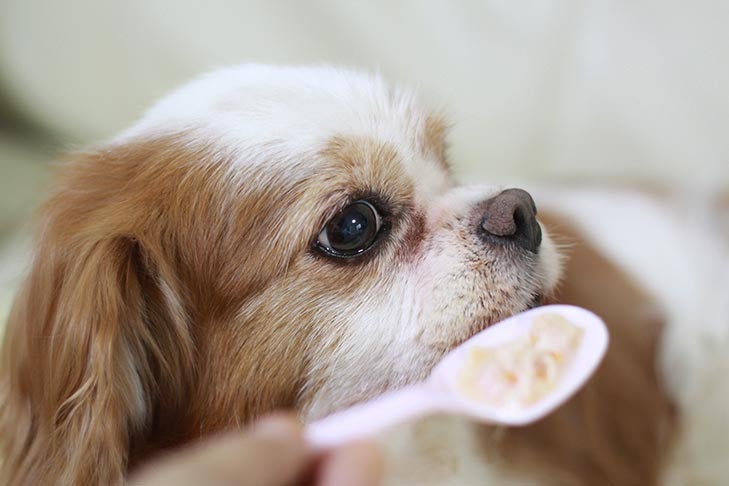
Weakened immunity leaves aging dogs vulnerable to infections. Strengthening their defenses is critical for their well-being.
Foods That Boost Immunity
- Sweet Potatoes: Rich in beta-carotene.
- Blueberries: Packed with antioxidants.
- Salmon: Omega-3s promote immune function.
Add these to their diet, or consult your vet about supplements tailored for immune health.
Monitoring Vision and Hearing
Vision and hearing loss are common but manageable. Sudden movements or loud noises may startle them more easily. Adjusting their environment reduces stress and confusion.
Recommendations for Sensory Support
- Nightlights: Make nighttime navigation easier.
- Hand Signals: Train or re-train them to respond to visual cues.
- Safe Spaces: Create a quiet, familiar area where they can relax.
Adapting how you communicate strengthens your connection and ensures they feel safe.
Preparing for the Inevitable

The hardest part of loving an animal is knowing that their time with us is finite. Palliative care focuses on comfort and quality of life during their final days.
Practical Advice for End-of-Life Care
- Consult Your Vet: Explore options for pain management and hospice care.
- Focus on Comfort: Provide soft bedding and a quiet space.
- Cherish Every Moment: Create meaningful memories, even in small, quiet ways.
Saying goodbye is never easy, but ensuring they leave the world loved and cared for is the ultimate act of devotion.
A Final Word
Caring for an aging companion involves adjustments, but it also deepens the bond you share. With thoughtful nutrition, regular checkups, and simple lifestyle changes, their later years can be just as joyful as their younger days. They’ve given you unconditional love—now it’s your turn to give them the care they deserve.

